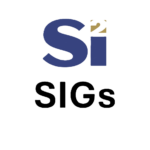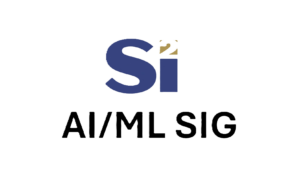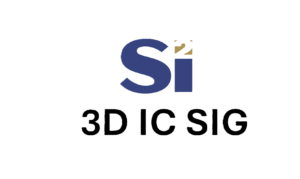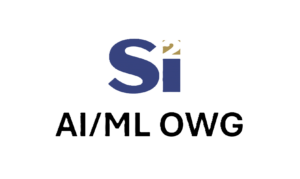![]() When industry collaboration on emerging areas is needed, Special Interest Groups (SIGs) and OpenStandards Working Groups (OWGs) provide the forum and engineering support needed to move from ideas to validated solutions. These activities are foundational for Si2 and provide members with access to other experts and early access to new solutions under development. The SIGs bring together expert users and suppliers to find opportunities for standards and beneficial shared utilities in areas where standardization could provide the most benefit. The OWGs bring together expert users and suppliers to define, protype and prove a new Si2 standard solution and give early access to members for testing and tuning in member environments.
When industry collaboration on emerging areas is needed, Special Interest Groups (SIGs) and OpenStandards Working Groups (OWGs) provide the forum and engineering support needed to move from ideas to validated solutions. These activities are foundational for Si2 and provide members with access to other experts and early access to new solutions under development. The SIGs bring together expert users and suppliers to find opportunities for standards and beneficial shared utilities in areas where standardization could provide the most benefit. The OWGs bring together expert users and suppliers to define, protype and prove a new Si2 standard solution and give early access to members for testing and tuning in member environments.
 Special Interest Groups can be proposed by any member of Si2 and are approved by the Si2 Board of Directors. They are collaborative groups that address the issues of the SIG’s members consistent with the purpose of the Initiative. SIGs generally explore emerging areas of interest with the goal of narrowing the focus and proposing specific actions (like creating a new OpenStandards Working Group). Once their tasks complete a SIG may end.
Special Interest Groups can be proposed by any member of Si2 and are approved by the Si2 Board of Directors. They are collaborative groups that address the issues of the SIG’s members consistent with the purpose of the Initiative. SIGs generally explore emerging areas of interest with the goal of narrowing the focus and proposing specific actions (like creating a new OpenStandards Working Group). Once their tasks complete a SIG may end.
 Successful application of AI/ML is critical for continued progress in chip and system design. The AI/ML SIG includes industry experts on machine learning, chip design, and EDA. SIG members work with these experts to explore how best to apply AI for chip design. Within the SIG, you will help identify technical standards opportunities, and recommend high-value prototype projects. These will help supplement the proprietary EDA efforts by providing standards and sharable capabilities.
Successful application of AI/ML is critical for continued progress in chip and system design. The AI/ML SIG includes industry experts on machine learning, chip design, and EDA. SIG members work with these experts to explore how best to apply AI for chip design. Within the SIG, you will help identify technical standards opportunities, and recommend high-value prototype projects. These will help supplement the proprietary EDA efforts by providing standards and sharable capabilities.
 3D-IC brings together previously-separate domains of chip and system design with package design. Also, this technology brings additional challenges in power and thermal design and in testability. Advanced 3D-IC packaging has been called a “wild west,” where a lack of standards means that each company that wants to participate has to figure out a lot on its own. Members of the 3D-IC SIG work together with experts from EDA companies, design companies, foundries, and OSATs to find opportunities for standards and beneficial shared utilities. You will work with the other SIG members to build and maintain an understanding of the landscape and the areas where standardization may provide the most benefit.
3D-IC brings together previously-separate domains of chip and system design with package design. Also, this technology brings additional challenges in power and thermal design and in testability. Advanced 3D-IC packaging has been called a “wild west,” where a lack of standards means that each company that wants to participate has to figure out a lot on its own. Members of the 3D-IC SIG work together with experts from EDA companies, design companies, foundries, and OSATs to find opportunities for standards and beneficial shared utilities. You will work with the other SIG members to build and maintain an understanding of the landscape and the areas where standardization may provide the most benefit.
SIGs provide opportunities for your employees to increase their knowledge in new areas. You can influence industry direction and provide publicity for your company through collaborative conference presentations and publications.
Any Si2 member company can request to start a SIG in any area of interest. Si2 will facilitate identifying the 4-5 other interested companies required to get a group started, and we facilitate regular meetings as well as conference panels and white papers. As a member, you determine whether the final deliverables are knowledge gathering for a publication, or propose that this subject move to the prototype stage in an OWG.
As a company methodology expert, you will discuss common problems with your peers, highlighting industry concerns in regular meetings, workshops, and guided roundtables with invited speakers. You have leadership opportunities to drive the topic, content and direction of the discussions. You will participate in industry conference panels and write white papers to gather wider consensus on problems definition. If your conclusions are strongly supported by industry companies, you can write proposals for industry standards and solutions from Si2, IEEE, or other standards organizations.
As an EDA tool developer – whether in an EDA supplier company or an IDM organization – you will have direct access to your customers and an open forum to discuss their methodology challenges. You will increase the visibility of your company by collaborating with industry and academia on conference panel discussions and writing white papers.
Participating in SIGs as a university researcher, you have a free opportunity for a regular window into the areas of interest for the industry. Your opinions are sought after as an objective third party by the IDM and EDA supplier companies. Your in-depth knowledge of past and current solutions in the subject area helps guide the group decisions. You and your graduate students can participate in publishing results along with the industry SIG members.
Si2 Special Interest Groups (SIGs) are established from time to time with the approval of the Board of Directors.
SIG membership is determined by the initial proposers of the group and expanded or reduced in accordance with the then current membership guidelines.
The SIG is led by one or two chairs and members collaborate via regular meetings. SIG members may participate in workshops, conference panels, presentations and write position papers for external publication.
 Open Standards Working Groups (OWGs) are chartered by the Si2 Board of Directors to produce Si2 standards and other intellectual property (“IP”) to support design flows.
Open Standards Working Groups (OWGs) are chartered by the Si2 Board of Directors to produce Si2 standards and other intellectual property (“IP”) to support design flows.
The OWG members develop requirements, review candidate technologies or services, propose resolution of issues and develop proposals for proof-of-concepts, prototypes, reference materials, compliance suites, standards, specifications and guidelines.
 An AI/ML Schema for Academia-Industry Collaboration
An AI/ML Schema for Academia-Industry CollaborationThe focus of this OWG is on a standardized schema specification which provides good support for AI/ML algorithms and for data analytics. The OWG will specify requirements, priorities and use cases and feed those into two existing schema projects in academia.
The members of a collaborating group have flexibility to dig deeper into specific design methodology areas:
Si2 staff and other OWG members will help you implement proofs of concept within your local design environment to test technology and IP under development on real examples in your company.
You have the opportunity to contribute software and methodology solutions to OWGs which will innovate on those platforms to create standards, giving your company a head-start to integrating these solutions in production.
You have the opportunity to have your academic solutions adopted and funded by an OWG, with requirements for features and enhancements provided by the industry members to make your solutions production ready.
The Creation of a new OpenStandards Working Groups (OWGs) is proposed by the OpenStandards Technical Steering Group (TSG) and approved by the Si2 Board of Directors. The TSG is composed of leaders from Si2 member companies that have a seat on the Si2 Board.
The TSG oversees the operation of all OWGs and makes recommendations to the Si2 Board of Directors on whether the results should become an Si2 standard or solution.